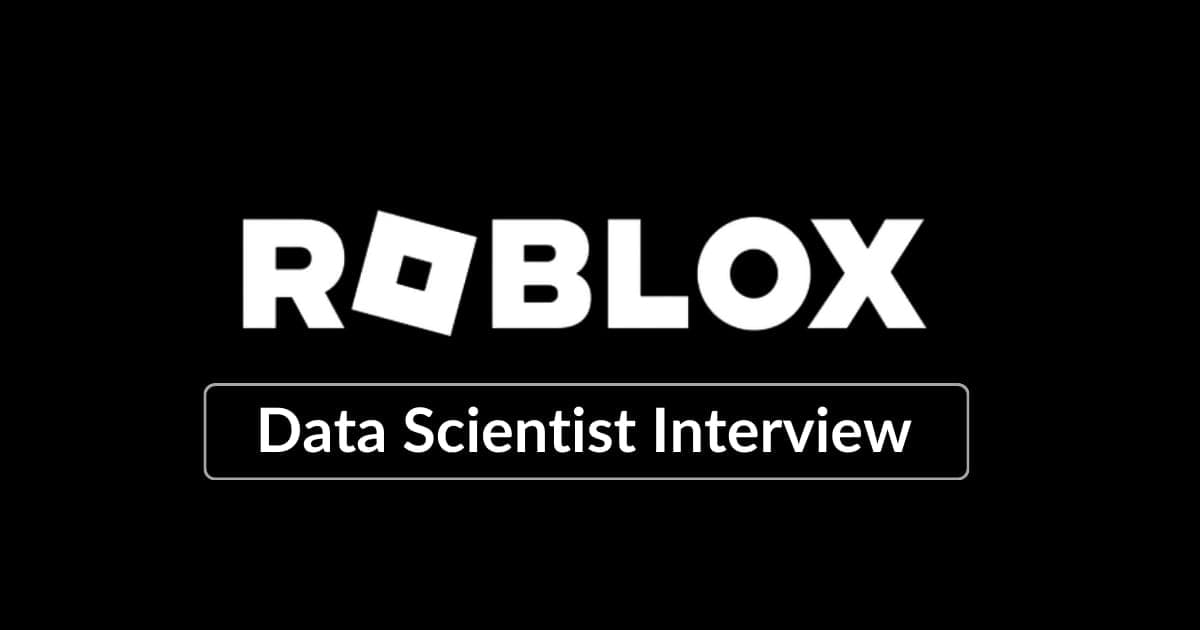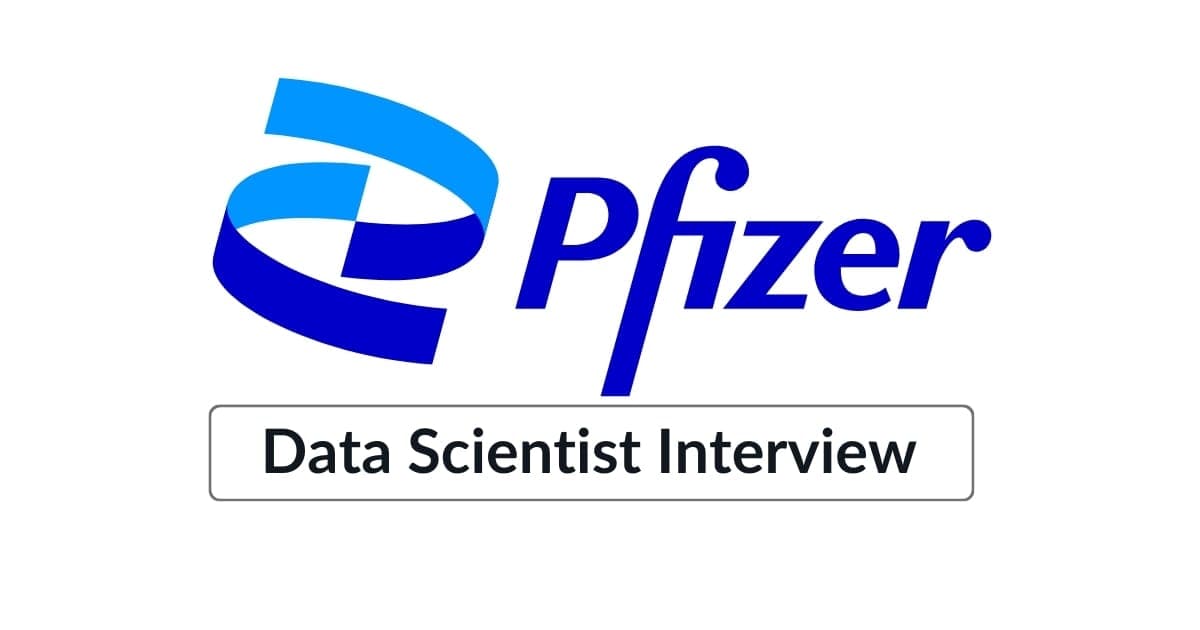Are you preparing for a Data Scientist interview at Palantir? This comprehensive guide will provide you with insights into Palantir's interview process, the key skills they seek, and strategies to help you excel.
As a leading company in data analytics and software solutions, Palantir is known for tackling some of the most complex challenges across various industries. Understanding their unique approach to interviewing can significantly enhance your chances of success, whether you're an experienced data professional or just starting your career.
In this guide, we will explore the interview structure, discuss the types of questions you can expect, and share valuable tips to help you navigate each stage with confidence.
Let’s dive in 👇
1. Palantir Data Scientist Job
1.1 Role Overview
At Palantir, Data Scientists play a pivotal role in leveraging data to solve some of the world's most pressing challenges. Utilizing Palantir's powerful platforms like Foundry and Gotham, Data Scientists are tasked with integrating, analyzing, and visualizing complex datasets to drive impactful solutions across various industries. This role requires a combination of technical prowess, analytical thinking, and a passion for problem-solving to empower organizations in sectors such as national security, healthcare, and finance.
Key Responsibilities:
- Utilize Foundry's modeling tools to create, evaluate, deploy, and manage data models.
- Develop advanced analytics solutions to address complex data challenges.
- Collaborate with cross-functional teams to integrate data-driven insights into strategic decision-making.
- Analyze large and diverse datasets to uncover trends and inform business strategies.
- Design and implement data integration and visualization solutions using Palantir's platforms.
- Work closely with clients to understand their data needs and deliver tailored solutions.
- Ensure data quality and integrity throughout the analytics process.
Skills and Qualifications:
- Proficiency in data analysis and modeling tools.
- Experience with data integration and visualization platforms.
- Strong problem-solving skills and the ability to work with complex datasets.
- Excellent communication skills to convey data insights to stakeholders.
- Ability to work collaboratively in a fast-paced, dynamic environment.
- Passion for using data to drive impactful solutions in various industries.
1.2 Compensation and Benefits
Palantir Technologies offers a competitive compensation package for Data Scientists, reflecting its commitment to attracting and retaining top talent in the data and technology sectors. The compensation structure includes a base salary, stock options, and performance bonuses, along with various benefits that support work-life balance and professional development.
Example Compensation Breakdown by Level:
| Level Name | Total Compensation | Base Salary | Stock (/yr) | Bonus |
|---|---|---|---|---|
| Entry-Level Data Scientist | $155K | $149K | $31K | $2.5K |
| Mid-Level Data Scientist | $181K | $149K | $31K | $2.5K |
| Senior Data Scientist | $183K | $149K | $31K | $2.5K |
| Principal Data Scientist | $352K+ | Varies | Varies | Varies |
Additional Benefits:
- Participation in Palantir’s stock programs, including restricted stock units (RSUs) with a 4 or 5-year vesting schedule.
- Comprehensive medical, dental, and vision coverage.
- Flexible work hours and remote work options to promote work-life balance.
- Generous paid time off and parental leave policies.
- Opportunities for professional development and tuition reimbursement for relevant education.
- Access to wellness programs and employee assistance services.
Tips for Negotiation:
- Research compensation benchmarks for data scientist roles in your area to understand the market range.
- Consider the total compensation package, which includes stock options, bonuses, and benefits alongside the base salary.
- Highlight your unique skills and experiences during negotiations to maximize your offer.
Palantir’s compensation structure is designed to reward innovation, collaboration, and excellence in the field of data science. For more details, visit Palantir’s careers page.
2. Palantir Interview Process and Timeline
Average Timeline: 3-4 weeks
2.1 Resume Screen
The first stage of the Palantir Data Scientist interview process is a resume review. Recruiters assess your background to ensure it aligns with the job requirements. Given the competitive nature of this step, presenting a strong, tailored resume is crucial.
What Palantir Looks For:
- Proficiency in Python, SQL, and data analysis.
- Experience with machine learning models and statistical analysis.
- Projects that demonstrate problem-solving skills and innovation.
- Alignment with Palantir’s mission and values.
Tips for Success:
- Highlight experience with data privacy, security, and large-scale data analysis.
- Emphasize projects involving A/B testing, machine learning, or data visualization.
- Use keywords like "data-driven decision-making," "statistical modeling," and "Python."
- Tailor your resume to showcase alignment with Palantir’s mission of solving complex problems.
Consider a resume review by an expert recruiter who works at FAANG to ensure your resume stands out.
2.2 Recruiter Phone Screen
In this initial call, the recruiter reviews your background, skills, and motivation for applying to Palantir. They will provide an overview of the interview process and discuss your fit for the Data Scientist role.
Example Questions:
- What is your experience with large-scale data analysis?
- How do you approach problem-solving in data science?
- Can you describe a challenging project and how you overcame obstacles?
Prepare a concise summary of your experience, focusing on key accomplishments and problem-solving skills.
2.3 Technical Screen
This round evaluates your technical skills and problem-solving abilities. It typically involves technical questions related to data science, including algorithms, machine learning, and data analysis.
Focus Areas:
- Python and SQL: Write code to solve data manipulation and analysis problems.
- Machine Learning: Discuss model evaluation metrics and feature engineering.
- Statistical Analysis: Explain concepts like hypothesis testing and probability.
Preparation Tips:
Practice coding and data analysis problems to enhance your technical proficiency. Consider technical interview coaching by an expert coach who works at FAANG for personalized guidance.
2.4 Onsite Interviews
The onsite interview typically consists of multiple rounds with data scientists, managers, and cross-functional partners. Each round is designed to assess specific competencies.
Key Components:
- Technical Challenges: Solve live exercises that test your ability to manipulate and analyze data effectively.
- Real-World Business Problems: Address complex scenarios involving data privacy, security, or machine learning models.
- Behavioral Interviews: Discuss past projects, collaboration, and adaptability to demonstrate cultural alignment with Palantir.
Preparation Tips:
- Review core data science topics, including statistical testing, experiment design, and machine learning algorithms.
- Research Palantir’s products and services, and think about how data science could enhance them.
- Practice structured and clear communication of your solutions, emphasizing actionable insights.
For Personalized Guidance:
Consider mock interviews or coaching sessions to simulate the experience and receive tailored feedback. This can help you fine-tune your responses and build confidence.
Palantir Data Scientist Interview Questions
Probability & Statistics Questions
Probability and statistics questions at Palantir assess your understanding of statistical concepts and your ability to apply them to real-world data problems.
Example Questions:
- Is this a fair coin based on 10 flips resulting in 8 tails and 2 heads?
- How would you write a function to calculate sample variance for a list of integers?
- What are the drawbacks of the given student test score datasets, and how would you reformat them for better analysis?
- How would you find the median of a list where more than 50% of the elements are the same?
- Explain the concept of data normalization and its importance in data analysis.
For more on statistics, check out the Applied Statistics Course.
Machine Learning Questions
Machine learning questions evaluate your knowledge of algorithms, model evaluation, and problem-solving techniques applicable to Palantir’s data-driven solutions.
Example Questions:
- Explain the bias-variance tradeoff and how it applies to building a predictive model.
- How would you evaluate whether using a decision tree algorithm is the correct model for predicting loan repayment?
- How does random forest generate the forest, and why use it over logistic regression?
- When would you use a bagging algorithm versus a boosting algorithm?
- How would you justify the complexity of a neural network model to non-technical stakeholders?
Enhance your machine learning skills with the Machine Learning Course.
SQL Questions
SQL questions assess your ability to manipulate and analyze data using complex queries. Below are example tables Palantir might use during the SQL round of the interview:
Users Table:
| UserID | UserName | JoinDate |
|---|---|---|
| 1 | Alice | 2023-01-01 |
| 2 | Bob | 2023-02-01 |
| 3 | Carol | 2023-03-01 |
Projects Table:
| ProjectID | ProjectName | StartDate | EndDate |
|---|---|---|---|
| 101 | Project Alpha | 2023-01-15 | 2023-06-15 |
| 102 | Project Beta | 2023-02-20 | 2023-07-20 |
| 103 | Project Gamma | 2023-03-25 | 2023-08-25 |
Example Questions:
- User Projects: Write a query to find all users who joined before the start of any project.
- Project Duration: Write a query to calculate the duration of each project in days.
- Active Projects: Write a query to find projects that were active on a specific date, e.g., 2023-04-01.
- Project Overlap: Write a query to identify projects that overlap in their duration.
- User Engagement: Write a query to determine the number of projects each user is associated with.
Behavioral Questions
Behavioral questions assess your ability to work collaboratively, navigate challenges, and align with Palantir’s mission and values.
Example Questions:
- Describe a time you used data to influence a product or business decision.
- How do you approach balancing multiple projects and deadlines?
- Share an example of a challenging dataset you worked with and how you handled it.
- Tell me about a time you disagreed with a teammate on a data analysis approach and how you resolved it.
- How do you incorporate feedback into your work to ensure continuous improvement?
4. How to Prepare for the Palantir Data Scientist Interview
4.1 Understand Palantir’s Business Model and Products
To excel in open-ended case studies at Palantir, it’s crucial to understand their business model and the products they offer. Palantir operates by providing data integration, analysis, and visualization solutions through platforms like Foundry and Gotham, which are used across various industries such as national security, healthcare, and finance.
Key Areas to Understand:
- Product Offerings: Familiarize yourself with Foundry and Gotham, and how they are used to solve complex data challenges.
- Industry Applications: Understand how Palantir’s solutions are applied in different sectors to drive impactful results.
- Data-Driven Decision Making: The role of data science in enhancing strategic decisions and operational efficiencies.
Understanding these aspects will provide context for tackling business case questions and proposing data-driven strategies during interviews.
4.2 Master Technical Skills
Palantir emphasizes technical proficiency, making it essential to hone your skills in data analysis, modeling, and coding.
Key Focus Areas:
- Python and SQL: Practice writing efficient code for data manipulation and analysis.
- Machine Learning: Understand model evaluation metrics, feature engineering, and the bias-variance tradeoff.
- Statistical Analysis: Be prepared to discuss concepts like hypothesis testing and probability.
Consider enrolling in a Data Scientist Interview Bootcamp to enhance your technical skills and gain confidence.
4.3 Align with Palantir’s Mission and Values
Palantir’s mission is to solve the world’s most pressing challenges through data. Aligning your preparation with this mission is key to showcasing your cultural fit during interviews.
Core Values:
- Innovation, collaboration, and a passion for problem-solving.
- Commitment to data privacy and security.
- Dedication to using data to drive impactful solutions.
Showcase Your Fit:
Reflect on your experiences where you:
- Used data to create impactful solutions.
- Collaborated effectively with diverse teams.
- Innovated on existing processes or products.
4.4 Practice Problem-Solving
Palantir interviews often involve solving real-world business problems. Practicing structured problem-solving approaches will help you excel in these scenarios.
Preparation Tips:
- Engage in mock interviews to simulate the experience and receive feedback.
- Practice articulating your thought process and solutions clearly and concisely.
- Consider coaching services for personalized guidance and expert feedback.
4.5 Enhance Your Communication Skills
Effective communication is crucial for conveying data insights to stakeholders at Palantir. Strengthening your ability to present complex information clearly will be beneficial.
Key Focus Areas:
- Practice explaining technical concepts to non-technical audiences.
- Work on storytelling techniques to make your data insights more engaging.
- Prepare to discuss past projects and how you used data to drive decisions.
For more structured preparation, consider joining a Data Scientist Interview Bootcamp to refine your communication skills.
5. FAQ
- What is the typical interview process for a Data Scientist at Palantir?
The interview process generally includes a resume screen, a recruiter phone screen, a technical screen, and onsite interviews. The entire process typically spans 3-4 weeks. - What skills are essential for a Data Scientist role at Palantir?
Key skills include proficiency in Python and SQL, experience with machine learning algorithms, strong statistical analysis capabilities, and familiarity with data integration and visualization tools, particularly Palantir's platforms like Foundry and Gotham. - How can I prepare for the technical interviews?
Focus on practicing coding problems in Python and SQL, review machine learning concepts and algorithms, and be prepared to discuss statistical methods and their applications in real-world scenarios. - What should I highlight in my resume for Palantir?
Emphasize your experience with large datasets, machine learning projects, and any relevant work that demonstrates your problem-solving skills and alignment with Palantir’s mission of using data to tackle complex challenges. - How does Palantir evaluate candidates during interviews?
Candidates are assessed on their technical skills, problem-solving abilities, and cultural fit. The interviewers look for a strong understanding of data science principles and the ability to communicate insights effectively. - What is Palantir’s mission?
Palantir’s mission is to help organizations use data to solve their most pressing challenges, focusing on data integration, analysis, and visualization to drive impactful solutions across various industries. - What are the compensation levels for Data Scientists at Palantir?
Compensation for Data Scientists at Palantir ranges from approximately $155K for entry-level positions to over $352K for principal roles, including base salary, stock options, and performance bonuses. - What should I know about Palantir’s business model for the interview?
Understanding Palantir’s business model involves familiarizing yourself with their platforms, Foundry and Gotham, and how they are utilized in sectors like national security, healthcare, and finance to provide data-driven solutions. - What are some key metrics Palantir tracks for success?
Key metrics include user engagement with their platforms, the effectiveness of data-driven solutions implemented, and the impact of their analytics on client decision-making processes. - How can I align my responses with Palantir’s mission and values?
Highlight experiences that demonstrate your commitment to using data for impactful solutions, your ability to collaborate with diverse teams, and your innovative approaches to problem-solving in data science.



